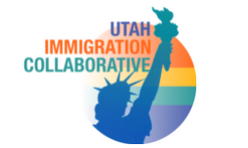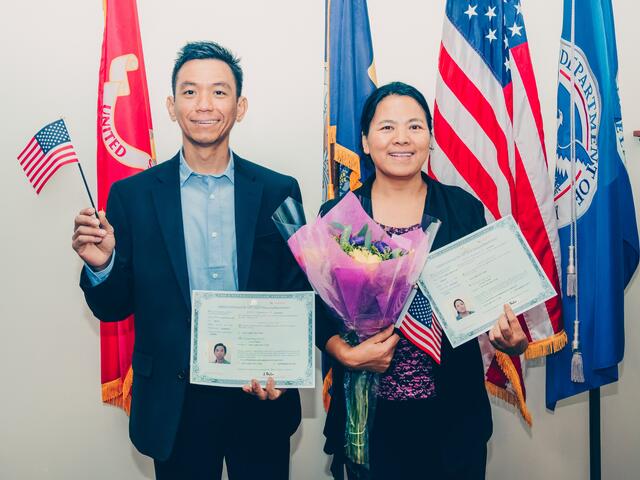
In 2019, with seed-funding from The Utah Bar Foundation, the International Rescue Committee (IRC) in Salt Lake City together with Comunidades Unidas, Catholic Community Services, Holy Cross Ministries and Immigrant Legal Services launched the Utah Immigration Collaborative (UIC). The network of agencies strives to improve access to legal assistance for low-income refugees, asylees, immigrants, and other displaced people living in Salt Lake County. In 2021, the continued focus of the Collaborative is addressing the increasing demand for immigration assistance.
Natalie El-Deiry, executive director of the IRC in Salt Lake City, shared that the Collaborative started out of a conversation between service providers and community partners to collectively address the growing need to provide affordable and coordinated immigration services. One of the most significant aspects of the Collaborative is the centralized, language-accessible referral line to better coordinate immigration services by directing prospective clients to the right agency from the start.
“It is a way to streamline immigration legal services so that people – no matter what the need is – can call us,” Natalie explained. With the five partners involved in the Collaborative, a caller will be connected to a service provider that caters to their unique needs. Before the referral line, families and individuals seeking immigration legal services usually spent unnecessary time researching and following up with multiple agencies to reach the appropriate agency.
The callers who need legal representation get directed to either Catholic Community Services or Immigrant Legal Services. With defense attorneys at both Immigrant Legal Services and Catholic Community Services, UIC has taken on multiple cases to provide legal representation to community members in Utah. Gina Crezee, executive director of Immigrant Legal Services, shares that most of the cases are about trying to find the right path for a person to stay in the United States. “Getting that first piece is the first hook in the chain, and then you build on that,” she reflected on the cases that have been won. Gina also mentioned how significant the work is for the community: “These people come with hardly any money. If you went to a private attorney, it could cost someone ten to fifteen thousand to apply for asylum.” Through the UIC, the current cost does not exceed $2,000.
The work that the UIC does can be difficult and tiring, but the positive outcomes are shared with joy. Isabel Allende from Comunidades Unidas shared an impactful story about an individual seeking immigration legal assistance who had called the UIC referral line in early 2021. The person hoped to find legal help filing a petition for a family member in Mexico but could not afford a private attorney. Through the UIC helpline, she was referred to an immigration specialist at the IRC in Salt Lake City, who was able to get her the help she needed with the petition. Isabel shared that the person recently called to share her happiness after receiving quick support through the referral line.

Another story described a person who reached out to the UIC referral line to seek help with a domestic violence case. Holy Cross Ministries took on the case and helped the individual prepare a claim and find legal representation and safety. Through Holy Cross Ministries’ assistance, the individual found resources to help navigate the trauma of being a survivor of domestic violence.
These stories represent the uniqueness of the UIC in providing efficient access for individuals seeking a multitude of services. Natalie noted that other collaborative networks exist, but Utah is uniquely connected and focused on working together for improved outcomes across the community. “There is no shortage of people to serve within the community, but the fact that these agencies have come together to work in this way is really unique. It does require a lot of effort.”
For the future of the UIC, Natalie hopes to not only sustain the program but to also see new donors and partners engage in this work. “The second thing I’d like is for us to add more legal representatives in the network,” Natalie said. “Specifically, more attorneys that can take pro-bono cases.” The Utah Bar Foundation provided the generous initial investment for the program, which will help maintain and expand the UIC during its first three years.
To learn how you can sign up to provide pro bono legal services, contribute to the program, or otherwise connect with the Utah Immigration Collaborative, visit UtahImmigrationCollaborative.org.
If you or someone you know needs immigration legal services, the UIC Referral Line is available Mondays through Thursdays from 9am to 6pm at 801 382 9027.